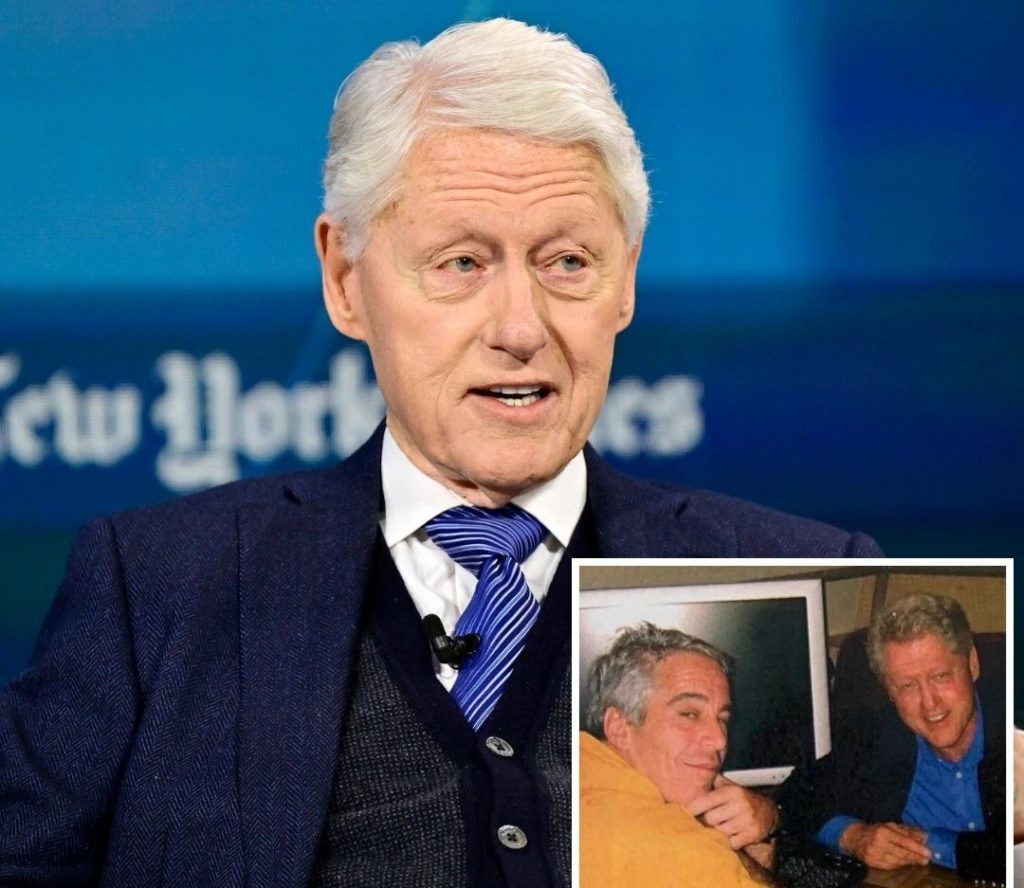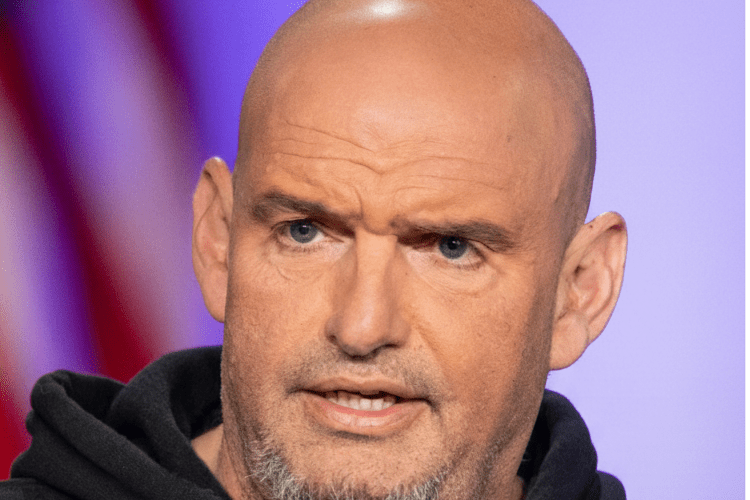Jeffrey Epstein’s newly uncovered emails claim he ended his friendship with Bill Clinton after calling the former president a liar — shocking details revealed in Congress document release
Jeffrey Epstein, the disgraced financier whose crimes and connections have haunted Washington and Hollywood alike, allegedly ended his friendship with former President Bill Clinton because he believed Clinton was a liar — at least according to new emails released by Congress this week. The revelations come from more than 20,000 pages of correspondence turned over by Epstein’s estate to the House Oversight Committee, which is examining the late financier’s political, financial, and social ties in the years leading up to his 2019 arrest.
Among the cache of documents, one particular email has drawn public attention for what it suggests about Epstein’s personal view of Clinton, who was once considered one of his most prominent associates. In the email, dated early 2016, Epstein wrote that he had cut off communication with Clinton after what he described as repeated dishonesty. “He swore, with whole-hearted conviction to me that he had done something,” Epstein allegedly wrote, “but he forgot that he also swore the exact opposite to me only weeks before.”
The message, which was included in exchanges with Kathryn Ruemmler, a former White House counsel under President Barack Obama, sheds light on how Epstein described his relationships with high-level figures across politics. The emails show Epstein and Ruemmler frequently discussing political events, personal networks, and the 2016 U.S. presidential election — conversations that, according to investigators, reveal just how comfortably Epstein operated among elite circles even after his 2008 conviction for soliciting a minor.

The House Oversight Committee’s report, portions of which were shared with major media outlets including The New York Post and Reuters, includes excerpts suggesting Epstein’s tone toward Clinton had shifted dramatically by 2016. Once a loyal donor and travel companion, Epstein referred to Clinton with disdain in later communications, claiming he “no longer believed a word” the former president said. The documents do not provide further context for what caused the apparent falling out, but they align with other accounts that Epstein felt politically sidelined and socially isolated following his prior scandals.
For decades, Clinton’s connection to Epstein has been a source of speculation and controversy. The former president acknowledged taking a handful of flights on Epstein’s private jet between 2002 and 2003 for work related to the Clinton Foundation but has repeatedly denied visiting Epstein’s private island or having knowledge of his criminal activities. “President Clinton knows nothing about the terrible crimes Jeffrey Epstein committed,” his spokesperson said in a past statement. “His relationship with Mr. Epstein was limited to philanthropic and professional matters.”
The newly released email, however, indicates that Epstein himself had a far more personal view of their relationship — and its collapse. The financier appeared frustrated by what he described as Clinton’s duplicity and self-interest. “Who knows what they’re talking about,” Epstein wrote in frustration to Ruemmler, implying that Clinton’s words could no longer be trusted. While such an email, standing alone, does not constitute proof of wrongdoing, its existence adds another layer to the already complex and often murky intersection between Epstein and some of the world’s most powerful people.
Kathryn Ruemmler’s own inclusion in Epstein’s circle has also drawn scrutiny. The former Obama administration lawyer appeared in Epstein’s contact lists and was listed as a backup executor in his 2019 will, signed just two days before his death in a New York jail cell. According to previously published flight records, Ruemmler was invited to Epstein’s private townhouse in Manhattan on several occasions, though her representatives have stated she was unaware of his crimes and viewed their correspondence as professional.
The committee’s report doesn’t suggest any criminal wrongdoing by Ruemmler, Clinton, or other individuals mentioned in the emails. Instead, investigators say the material helps build a clearer picture of Epstein’s reach — one that extended far beyond the worlds of finance and into politics, law, and international diplomacy. The House Oversight Committee said it continues to review additional records, including emails, travel logs, and calendars obtained from the Epstein estate.
Committee chair James Comer (R-KY) said the new information underscores why the public deserves transparency. “For too long, key institutions have shielded the details of Epstein’s network from scrutiny,” Comer said in a statement. “Our responsibility is to ensure that this time, the facts come to light.”
Critics of the congressional inquiry argue that the renewed focus on Epstein’s communications risks sensationalism without necessarily advancing justice for his victims. “We must not lose sight of what really matters — the exploitation of vulnerable young women and girls,” said one attorney representing Epstein survivors. “The political intrigue around these emails might sell headlines, but it doesn’t bring healing or accountability.”
Still, the nature of Epstein’s social web — and how far it extended into government circles — remains a subject of global interest. The disgraced financier was known to cultivate relationships with high-profile figures ranging from Clinton and former Israeli Prime Minister Ehud Barak to Britain’s Prince Andrew. His ability to maintain these connections despite his 2008 conviction for soliciting a minor continues to raise uncomfortable questions about how wealth and influence can insulate even the most controversial figures.
The documents also include several exchanges between Epstein and unidentified political donors discussing the 2016 election. In one email chain, Epstein speculated about political strategy, writing cryptically about “keeping certain people in line” and “reminding them who funded what.” Analysts reviewing the cache say these comments, though vague, demonstrate Epstein’s persistent interest in power and influence even after his reputation had begun to unravel publicly.
For Bill Clinton, the release of these emails adds another unwelcome chapter to a long-running saga. Though no evidence has ever surfaced linking the former president to Epstein’s trafficking crimes, his repeated appearances in Epstein’s flight logs and photographs — some of which show the two smiling together — have kept the connection alive in public discourse. Clinton has largely refrained from commenting on Epstein in recent years, and his office did not respond to requests for comment following the committee’s latest document release.
Observers note that the language Epstein used in describing Clinton — calling him dishonest and unreliable — could have been self-serving. As a man obsessed with power and betrayal, Epstein often exaggerated his closeness to influential people. He also kept meticulous but sometimes misleading records of his communications and meetings. Forensic analysts have previously found inconsistencies in Epstein’s emails and calendars, suggesting some entries were added after the fact or crafted to give the impression of deeper relationships than actually existed.
Whether Epstein truly “cut off” Clinton or merely sought to portray himself as doing so remains uncertain. What’s clear, though, is that his correspondence with Ruemmler paints a portrait of a man who felt scorned by powerful allies. The tone is both bitter and self-righteous — as if Epstein, despite his own moral collapse, still viewed himself as a betrayed insider.
Congressional investigators are now weighing whether to call several high-profile witnesses, including former President Clinton and members of Epstein’s legal team, to testify under oath. That decision, officials say, will depend on whether the new trove of emails reveals actionable information or merely reaffirms the patterns already known from previous investigations.
In the meantime, the Epstein story continues to reverberate through the halls of Washington and beyond. The latest revelations show that the scandal — far from fading with Epstein’s death — continues to evolve, offering new fragments of a story that has never quite reached its end. Each email, each line of correspondence, seems to raise more questions than it answers about who knew what, and when.
As for the email about Bill Clinton, investigators may never fully determine whether it reflected a genuine rupture or a manipulative performance by Epstein himself. But the image it paints — of a powerful financier dismissing one of the most influential men in modern American politics as a liar — is striking, if not symbolic. It serves as yet another reminder of how deeply Epstein embedded himself in the machinery of power, and how the echoes of those relationships continue to shape public trust in the institutions they touched.



